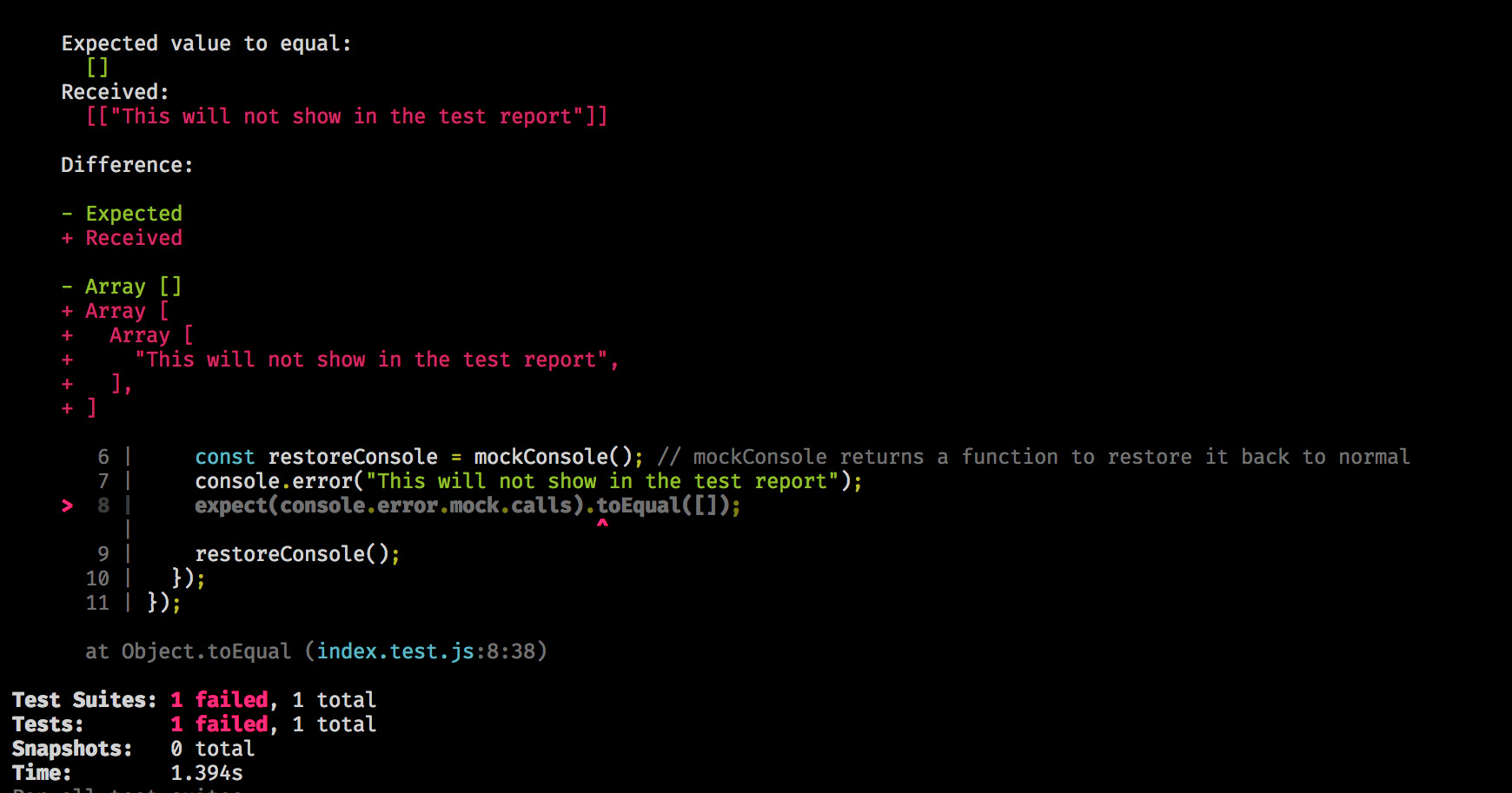
I understand why this is happening, but I've not found a way to enable me to mock axios and not have the client field be undefined. The problem arises when I mock the axios dependency with jest.mock('axios') - A TypeError is being thrown in the test when an attempt is made to call axios.get: TypeError: Cannot read property `get` of undefined Automocking the module will suffice for most testing scenarios you come up with, since it allows you to separate behavior of the module from the way your. As noted in my previous post, jest offers a really nice automocking feature for nodemodules.
#Jest mock constructor how to
In the constructor of my API class I pass in a URL, and use the axios.create function to create a custom instance of axios and bind it to the the client property. TIL how to mock the constructor function of a nodemodule during unit tests using jest. In the unit tests I am mocking axios using Jest.

I am writing a JS API client that wraps the underlying axios library.

This is anti pattern, please do not do this jest.mock( '.New to node.js. Besides, you should use jest.resetModules () to reset the module cache from require.cache object before mocking with different implementations. You can use jest.doMock (moduleName, factory, options) to mock module1 module. Let me explain with a simple example! Assume we have a class or module called miniMath that gets an argument and has public functions of double() and tipple() and isEven() : class MiniMath from "./my-code" You are testing module2, so you need to mock module1 rather than module2. Regardless of what inputs it gets to its public functions, it always returns the same predetermined results. Version: 29. Remember that we are not trying to test the library we are mocking! What you need to do is to create a similar class with absolutely no logic that implements the same APIs (Application Programming Interface), so you can replace it with the original one. There’s a shorter way to write the test that doesn’t create the mockA, mockB and mockC variables, but I like to have them around so that I can change the return values of the mocks in other tests. When you feel you need to mock the constructor with arguments, you are probably trying to influence the library to do something! Or maybe you are trying to duplicate the logic. Here’s an example of a test suite that replaces the dependencies of the getAll function using the jest.mock function. I am going to teach you how to access the argument that used to new up your class form your mock, but first hear me out! If you found yourself in a situation that you need to access that parameter in your mock, you are probably doing something wrong! Mock class constructor with parameters line 30: you successfully can test that playSoundFile is being called and the argument with value of ‘song.
#Jest mock constructor manual
The short answer to how to mock constructor with parameters in jest is : parameters do not really matter, you don’t need to tell your manual mock about the arguments Pretend that your contractor doesn’t have parameters and you are good with your mock! Just assert that the constructor is called with correct value. The key is as jest.Mock at the end of this line. This applies to both JavaScript and typescript.īefore we get to manual mocking the class, let’s get the constructor parameter problem out of the way. In this article we are going to expand our knowledge and review how to manually mock a ES class or module with Jest especially when constructor has arguments. Since it happen to come up on google results, get to see what people search around the subject and “ jest mock constructor with parameters typescript” is a popular one! I also I get lots of question about both manual mock and mocking a class constructor with parameters.

Earlier I wrote How to Mock a TypeScript class or dependency using Jest, that is basically a how to auto mock the ES class or module when it comes to typescript.


 0 kommentar(er)
0 kommentar(er)
